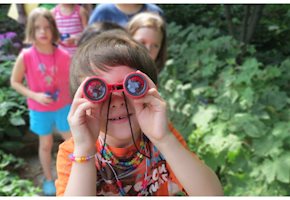At a restaurant last week, I watched a family order their food, then immediately bury themselves in their phones—for the entire meal. Sadly, this isn’t surprising. In The Anxious Generation, Jonathan Haidt highlights how today’s teens spend 8-10 hours a day on screens, with constant notifications fragmenting their attention. Childhood has shifted from real-world interactions to isolated digital consumption.
Before smartphones, kids played together, watched TV as a group, and even gamed in the same room. Now, they “hang out” alone, on separate devices. This social deprivation is fueling an anxiety epidemic. Once kids get phones, their real-life friendships decline. Online interactions don’t replace the need for in-person social development. The perfect antidote? Screen-free summer camp.
Haidt suggests four solutions to counteract screen dependency, all of which align with the values of summer camp:
1. No Phones in Schools – It’s already happening! Eighteen U.S. states, plus the UK and Canada, are banning phones in schools, leading to improved test scores and happier students. At my camps, we’ve never allowed phones, and kids consistently thank us for it.
2. No Smartphones Until High School – Kids get smartphones because “everyone else has one,” yet it brings unnecessary stress and social pressure. Giving younger kids a flip phone is a better option. Parents are stuck in a no-win situation—until summer camp offers them a much-needed screen detox!
3. No Social Media Until 16 – Social media, especially TikTok, is addictive and damaging, comparable to gambling. If another product harmed kids this much, we’d ban it. Yet we overprotect kids from the real world while under protecting them from the online one. Camp provides a safe, screen-free environment where kids can be kids.
4. More Unstructured, Unsupervised Play – Kids need real-world play, risk-taking, and adventure to develop social and problem-solving skills. Society has prioritized test scores over play, but camp restores this balance.
At summer camp, kids form deep friendships, learn resilience, and build social skills—all while immersed in an encouraging, screen-free community. Haidt believes one of camp’s greatest benefits is teaching kids to take safe risks—a crucial skill for facing life’s challenges.
Encouraging children to put down their screens and embrace real experiences is more than nostalgia—it’s essential for their development. Summer camp isn’t just a getaway; it’s a necessity in today’s digital world.
Andy Pritikin is the owner/director of Liberty Lake Day Camp in Bordentown, NJ, as well as the co-owner of Everwood Day Camp in Sharon, MA, and Camp Southwoods in Paradox, NY. He’s the Past President of the American Camp Association NY/NJ, and the host of the “Day Camp Podcast”






Add A Comment
Thank you for your comment.
Sorry! There was a problem with your comment submission. Please try again.
Comment
Allowed HTML: <b>, <i>, <u>, <a>
Comments
Thank you for your comment.
Sorry! There was a problem with your comment submission. Please try again.
Thank you for your comment.
Sorry! There was a problem with your comment submission. Please try again.